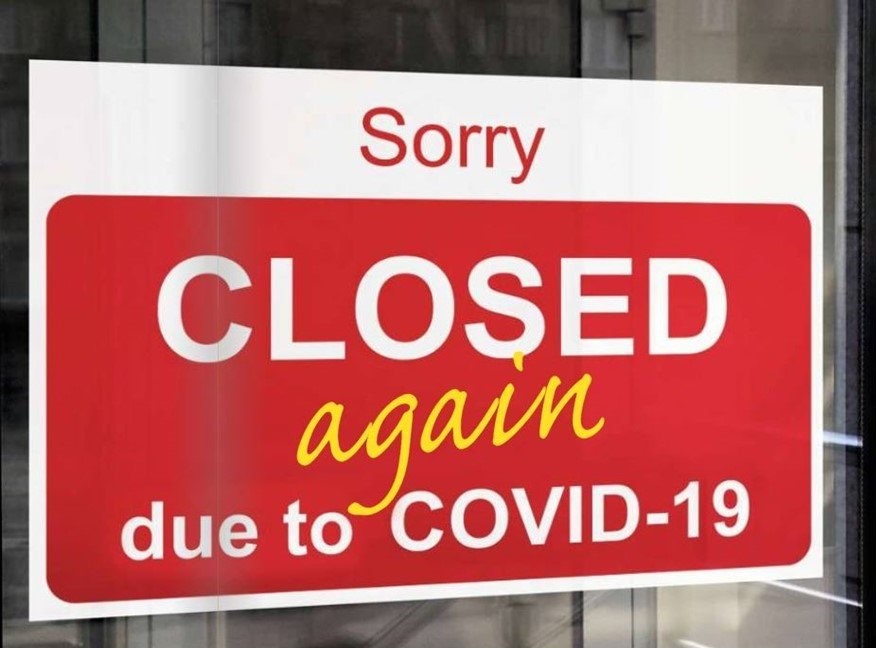Blog News
Blind Maze
Links
Free Mind

The Benefits of the Lockdown. Spoiler Alert! It's not what you expected.
Posted January 19th, 2021
STANFORD, California, January 14, 2021 – by Michael Haynes
A new study compiled by experts from Stanford University, has found that severe lockdown restrictions, such as stay at home orders and closure of businesses, have no “clear, significant benefits” in preventing the spread of COVID-19, and may in fact increase infection rates.
Entitled, “Assessing mandatory stay-at-home and business closure effects upon the spread of COVID-19,” the paper was released on January 5 this year, by Dr. Eran Bendavid and Professor John Ioannidis, along with Christopher Oh and Dr. Jay Battacharya, one of the three authors of the Great Barrington Declaration. All four are based in various departments in Stanford University, including the Department of Medicine, the Center for Health Policy and the Center for Primary Care and Outcomes Research, and the Department of Epidemiology and Population Health.
The authors studied the effect of “non-pharmaceutical interventions (NPIs)”, discerning between “more restrictive NPIs (mrNPIs),” and “less restrictive NPIs (lrNPIs).”
Lockdowns, stay at home orders, and business closures, were all designated as “some of the most restrictive NPI policies,” in the paper.
Based upon results drawn from countries where very restrictive NPIs were used, compared to countries with only light restrictions, the study found “no clear, significant beneficial effect of mrNPIs on case growth in any country.”
As to whether the spring lockdowns of 2020, i.e. mrNPIs, brought infection rates down, the study wrote: “there is no evidence that more restrictive non-pharmaceutical interventions (“lockdowns”) contributed substantially to bending the curve of new cases in England, France, Germany, Iran, Italy, the Netherlands, Spain, or the United States in early 2020.” The authors admitted that whilst “modest decreases in daily growth” could not be “excluded in a few countries, the possibility of large decreases in daily growth due to mrNPIs is incompatible with the accumulated data.”
Those eight countries which employed restrictive NPI’s (USA, England, France, Germany, Italy, Iran, Netherlands, Spain), were each compared to the less restricted countries of Sweden and South Korea, and the authors noted that “[u]nder no comparison is there evidence of reduction in case growth rates from mrNPIs, in any country.”
In 12 out of 16 comparisons, the opposite was in fact true, with “mrNPIs resulting in increased daily growth in cases.” “It is possible,” the authors stated, “that stay-at-home orders may facilitate transmission if they increase person-to-person contact where transmission is efficient such as closed spaces.”
The evidence presented, demonstrated that mrNPIs such as lockdowns, were not even necessary, since “reductions in social activities that led to reduction in case growth were happening prior to implementation of mrNPIs because populations in affected countries were internalizing the impact of the pandemic in China, Italy, and New York, and noting a growing set of recommendations to reduce social contacts, all of which happened before mrNPIs.”
The final conclusions presented in Bendavid’s and Ioannidis’s study are worth reproducing in full here:
In summary, we fail to find strong evidence supporting a role for more restrictive NPIs in the control of COVID in early 2020. We do not question the role of all public health interventions, or of coordinated communications about the epidemic, but we fail to find an additional benefit of stay-at-home orders and business closures.
The data cannot fully exclude the possibility of some benefits. However, even if they exist, these benefits may not match the numerous harms of these aggressive measures. More targeted public health interventions that more effectively reduce transmissions may be important for future epidemic control without the harms of highly restrictive measures.
For those who want to reald the original study, here below the Link :
https://onlinelibrary.wiley.com/doi/epdf/10.1111/eci.13484
HPA


1 comments
January 19th, 2021 13:51
"Something is rotten in the state of Denmark "... Segnalo che la finestra di Instagram sul blog non si vede più nulla... puoi rimetterla a posto, tesoro?
Post a comments
Login or Register to leave a comment.